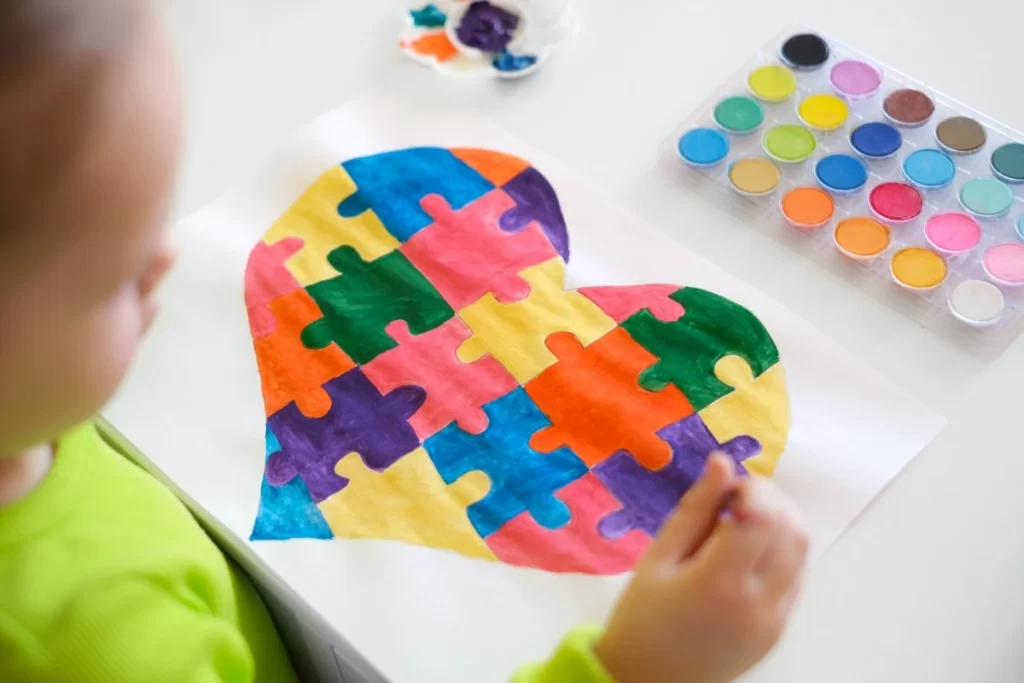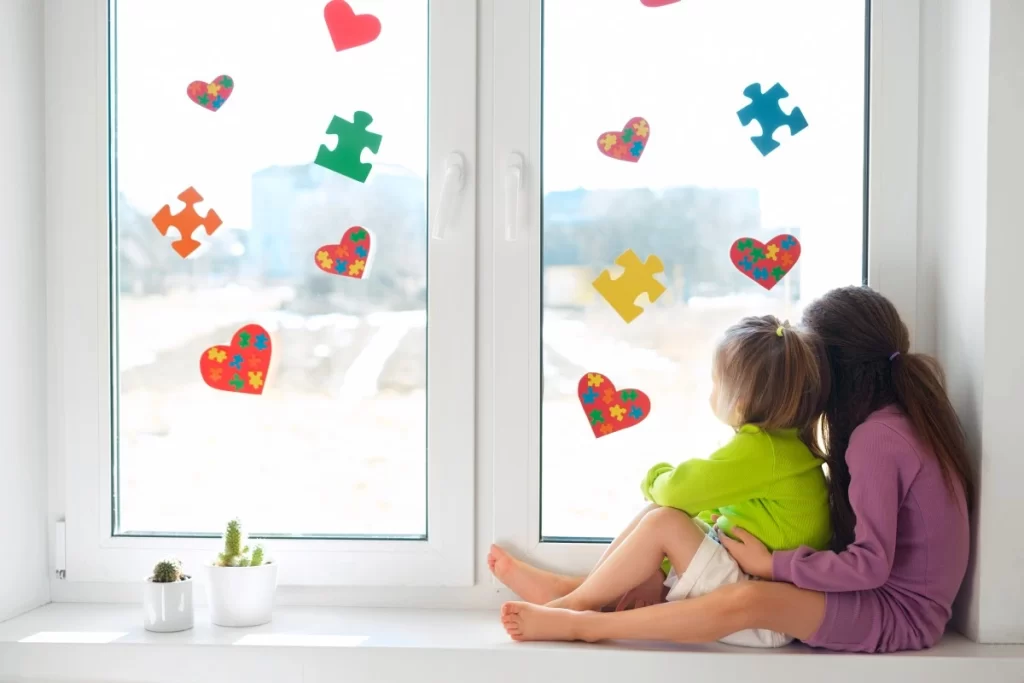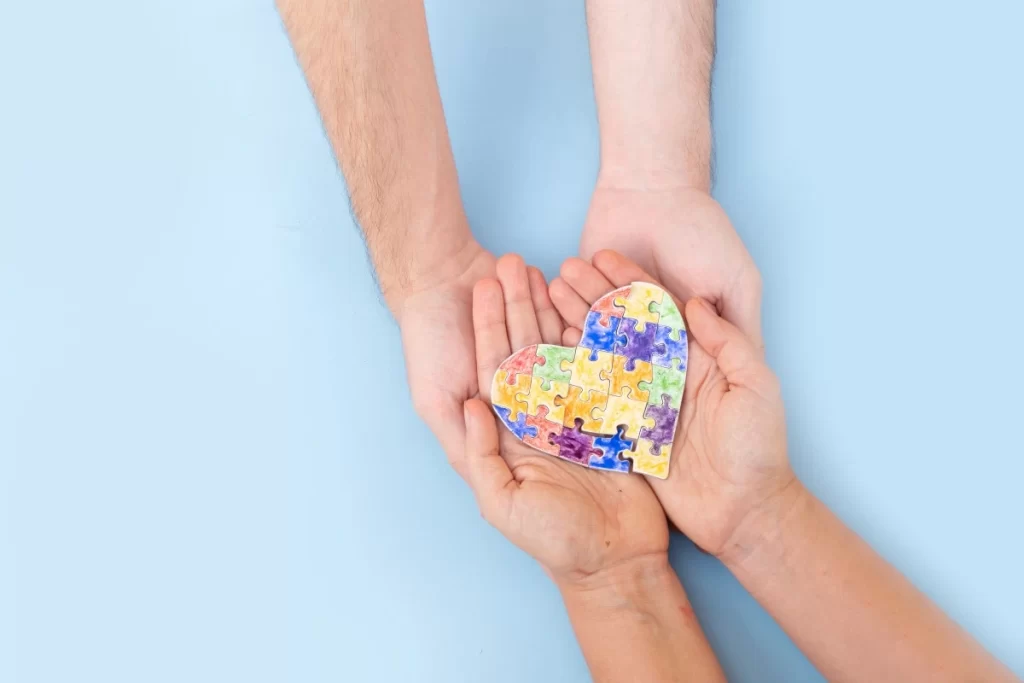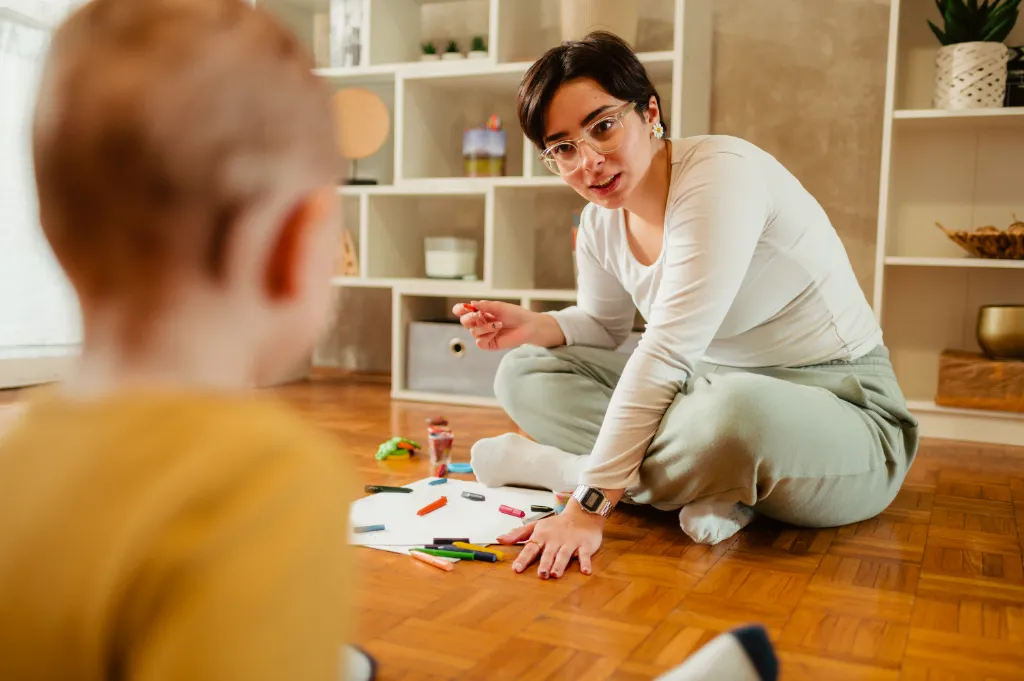How Does Autism Affect Relationships?
Every person on the planet has their own way of thinking and perceiving information. This is something that makes us unique as individuals, and understanding this more deeply gives us leverage to build confidence in knowing that we all have something unique to bring to the table. We are all capable of contributing and shaping this world in our own different ways and building a strong versatile society.
When comparing neurotypicals and neurodivergent people, there is also uniqueness in perceiving. They both process information and situations differently and enable others to elevate their perception and take into consideration other people’s points of view.
However, when facing differences in perception and processing of information, socialisation establishing communication channels can be a challenge.
People with Autism may sometimes face challenges with:
- Expressing emotions
- Maintaining eye contact
- Understanding body language
- Behaviours that challenge
- Understanding social norms
- Change in routines
- Anxiety
Finding ways to bridge the barriers is always the most difficult part. Despite the differences, a person on the Autism spectrum can most certainly find benefit in forming strong relationships and enjoy satisfying relationships and friendships, just like everyone else. As long as people find trust in each other, understanding and compassion, they will have the power to transform stereotypes and make the world a more inclusive place for all.
The clinicians from Unique Community Services focus on building strong friendships with the people under our care and their families. By focusing on the quality of care and the continuity of care, they understand that the main priority is forming strong communication channels and building trust.
The clinicians prioritise setting in place a routine which helps people feel more at ease. With the help of positive behaviour support as a baseline for their independent living, people under our care get to choose their settings and choose the life that they want to live.
Relationships with Family
Everyone faces challenges with their family, but with kindness and compassion, people can grow to understand each other. Understanding the challenges an Autistic person may face within family dynamics is crucial for building supportive and resilient relationships.
Here are some important aspects to consider:
Parental Support Services – Following an autism diagnosis, it’s essential for parents to reach out and request support services that can help them provide the best support for their child. By tapping into available resources, parents can make the necessary adjustments to ensure their child’s well-being and growth.
Adapting Family Traditions – Family traditions, such as vacations, can present challenges for some Autistic people, often due to the change in routine and environment. However, supported holiday carers can alleviate these challenges and ensure that families continue to enjoy these meaningful experiences together. By exploring options that cater to the individual’s unique needs, families can create lasting memories while preserving their cherished traditions.
Cultivating a Supportive Social Circle – Participating in social events can be challenging for some individuals on the Autism spectrum. Raising awareness about Autism among friends and acquaintances can foster a more inclusive and accommodating environment. Educating others about Autism empowers them to make adjustments that support the individual’s needs, enabling families to participate in social activities with greater ease and enjoyment.
Families can navigate challenges together by making adjustments, seeking support services, nurturing open communication, and creating an environment that fosters understanding, resilience, and love.

Relationships with Carer and Social Worker
Healthcare professionals, carers, and social workers play a crucial role in helping individuals with Autism. By working closely together, they can design tailored care and support plans that address each individual’s unique needs, wishes, and aspirations.
Person-centred conversations are crucial to forming healthy relationships. These conversations create a space where the person’s voice is heard, respected, and valued. By actively involving the individual in decision-making regarding their care and support, professionals can enhance a person’s sense of autonomy and self-determination.
When providing 24-hour care at home, healthcare professionals, carers and support workers understand and know the specific care needs of the individual. By gaining insight into their health, sensitivities, and communication styles and preferences, professionals can provide tailored care that prioritises the person’s well-being.
Romantic Relationships
Romanic relationships can be challenging for anyone. For some individuals on the Autism spectrum, navigating romantic relationships and dating can present unique challenges. Traditional social norms, nonverbal cues, and sensory processing differences can lead to miscommunication or misunderstandings within a romantic relationship. However, with understanding and support, individuals with Autism can build fulfilling and meaningful connections.
Communication is the foundation of any successful long-term relationship. Encouraging open and honest conversations about concerns, needs, and expectations can help establish mutual understanding and promote effective communication. Creating a safe space where both partners can express their thoughts and emotions openly can strengthen the bond and foster a deeper connection.
Professional advice and support can be invaluable for individuals on the Autism spectrum in romantic relationships. Seeking professional help early on can prevent potential challenges and help both partners develop the skills to nurture a healthy and fulfilling relationship.
By embracing strategies that accommodate differences, couples can overcome challenges, strengthen their relationship, and create a loving and fulfilling partnership.
Challenges of Autism in Relationships and Friendships
Autism affects how an individual processes, experiences and interacts with the world. Misunderstandings and miscommunications can sometimes cause challenges within friendships. However, challenges can be overcome with compassion and understanding.
Some common challenges people on the Autism spectrum may face within their friendships include:
Social cues. Sometimes individuals on the Autism spectrum may find it difficult to read social cues. Misunderstanding facial expressions, tone of voice and a person’s mood are common challenges that lead to miscommunication. Practising empathy, patience, and explicit clarification can help bridge the communication gap and lead to understanding.
Consistency. While everyone is different, many Autistic individuals face challenges with a change in routine. Planning and giving notice can help prepare for schedule changes or daily habits. Finding a balance between predictability and flexibility can foster a supportive environment where both individuals feel comfortable and valued.
Anxiety. Some people on the Autism spectrum may experience anxiety. Encouraging open communication about feelings and providing coping strategies can help reduce anxiety levels. Creating a calm and supportive environment can contribute to better self-esteem and emotional well-being for both individuals.
Diverse interests. Differences in interests can pose a challenge. One way to combat this is to introduce casual conversation for exploring common and diverse interests. This way, individuals can develop a deeper understanding and appreciation of each other’s passions.
Sensory impairments. Being mindful of and respecting boundaries related to specific sensory needs is crucial. Understanding and accommodating sensory sensitivities can help create a comfortable and inclusive environment.
Building and Maintaining Strong Relationships With an Autistic Person
Building and maintaining strong relationships requires understanding, empathy, and effective communication. There are many strategies and approaches to consider when building and maintaining strong relationships with individuals on the Autism spectrum.
Below are some methods to build and maintain relationships:
Mutual understanding – Finding common ground is the starting point in any relationship. Being patient and understanding during moments of anxiety is essential and contributes to maintaining a strong relationship.
Education – Understanding a person on the Autism spectrum also means being informed about Autism. Asking questions and sharing views is part of learning about another person’s perspective and experiences. Understanding another person’s perspective will enhance empathy and enable better support.
Encouraging autonomy – Individuals on the Autism spectrum should be supported in developing self-advocacy skills. It is vital to promote autonomy, encouraging people to express their needs, interests and preferences, empowering them to make choices and decisions that align with their goals and aspirations.
Seeking professional support – Therapists, counsellors, and support groups can provide valuable guidance and insights, offering strategies for navigating challenges and strengthening relationships.


The Strengths of Autism
While everyone faces challenges, it’s important to remember that individuals on the Autism spectrum possess unique strengths that contribute to meaningful friendships and relationships.
Some of the strengths associated with Autism include:
Emotional capacity – People on the Autism spectrum often exhibit a higher emotional capacity, experiencing emotions deeply and authentically. This can enrich relationships by fostering empathy, understanding, and strong emotional bonds.
Attention to detail – Noticing details about their partner or friend is a common strength of individuals with Autism. Remembering details and important information can enhance the connection and make the other person feel truly seen and appreciated.
Awareness – In many cases, Autistic people are incredibly aware of the preferences and interests of their loved ones. Their attentiveness allows them to understand their partner or friend’s needs, likes, and dislikes and create an environment of mutual understanding and connection.
Honesty – Individuals on the Autism spectrum tend to exhibit honesty, fostering trust and open communication in relationships. This approach can strengthen relationships by promoting transparency and authenticity.
Overcoming Communication Barriers in Autism and Relationships
Communication is a vital component of any successful relationship. Overcoming communication barriers is crucial for fostering meaningful connections and building strong relationships. Clear and direct communication and adapting communication styles to overcome barriers are essential for connecting with individuals on the Autism spectrum.
These are some ways how that can be achieved:
- Being mindful of figurative language
- Being mindful of nonverbal communication
- Being patient
- Adapting communication styles
- Asking for clarification
- Practice active listening
- Reduce distractions
- Use alternative communication methods, such as visual supports or written communication
- Being compassionate and understanding
The Right for Autistic People to Lead Fulfilling Lives
A fulfilling life can mean different things to different people. It can mean attending university, pursuing a career, starting a family, participating in hobbies and interests, or forming close friendships. Everyone is different, and we should respect each person’s individuality and unique preferences.
With proactive support, we can ensure that individuals on the Autism spectrum engage in activities and interests that are meaningful to them, contributing to a fulfilled life. While people with Autism may face challenges, they can reach their goals with the proper support.
One of the keys to assisting people in living fulfilled lives is early intervention, support and resources, which include:
- Supportive therapies
- Accessible education
- Person-centred care
- Skills training
- Adjustment to environments
- Support from family, friends, and the community
It’s important to note that while some people with Autism may need minimal assistance, others may require more intensive support throughout their lives. Therefore, tailored programs and support services are crucial.
Unique Community Services Helps Autistic Individuals to Live Fulfilling Lives
At Unique Community Services, we provide tailored care and person-centred support for people on the Autism spectrum.
Our expert clinicians are dedicated to creating an environment that makes individuals safe and empowered to reach their goals and prioritise the unique interests and preferences of the people they serve. Support plans are designed around each person’s strengths, enabling people to be as independent as possible and improving their quality of life.
Contact us to discover how our personalised care services can support you. Our offices in Manchester and Bristol are ready to help you and your loved ones.














